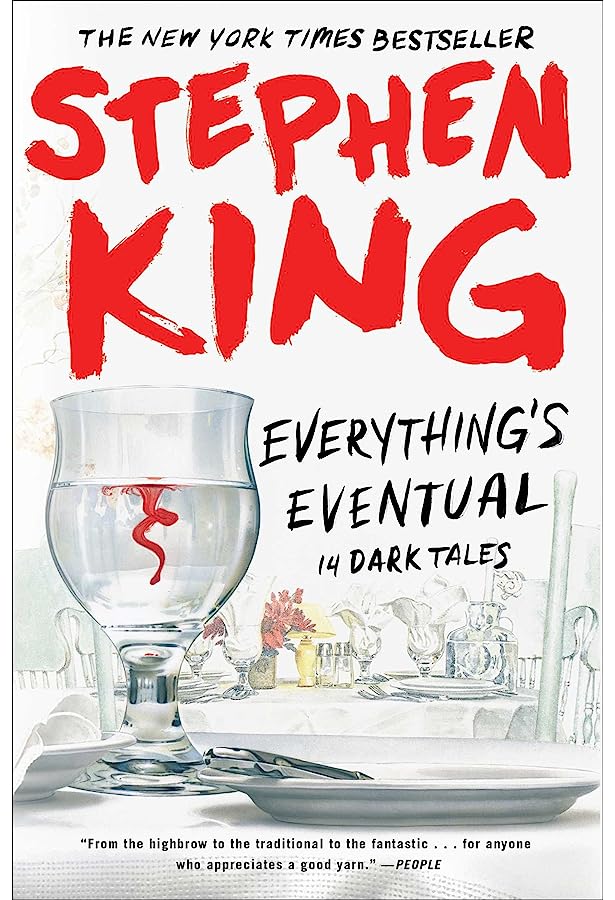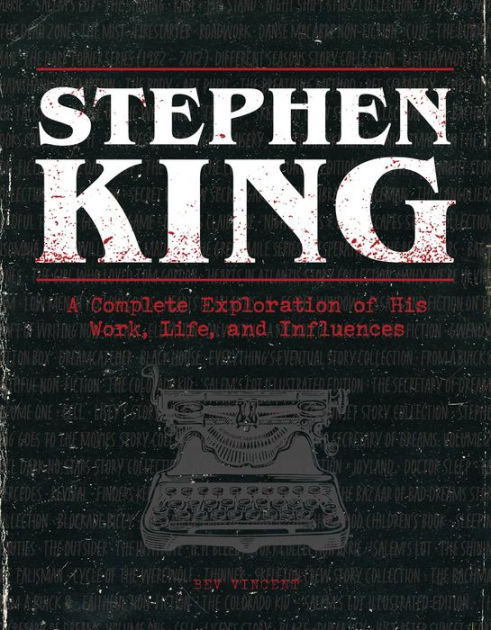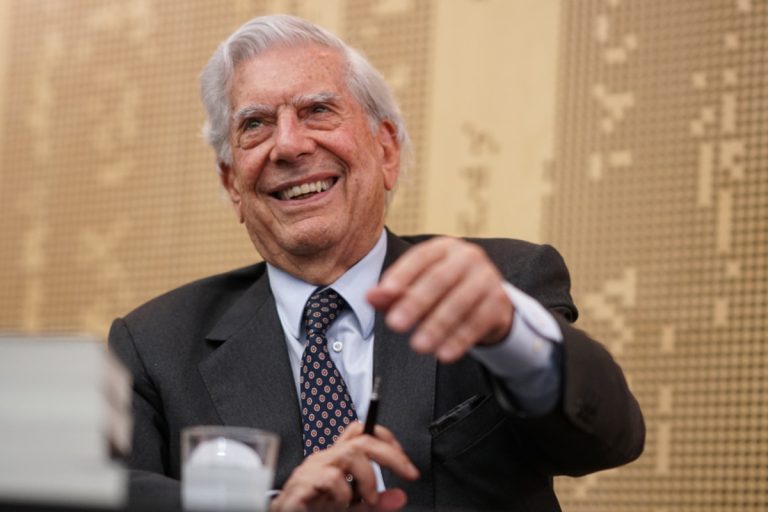Unraveling The Dark Tales: An Introduction To Stephen King’s Books
Welcome, dear readers, to the world of Stephen King, a master of horror and suspense. In this captivating journey, we will be unraveling the dark tales that have captivated readers for decades. Brace yourself as we delve into the chilling depths of Stephen King’s books and discover the secrets that lie within.
Stephen King is a legendary author known for his ability to create spine-tingling stories that haunt our dreams. His works have become cultural touchstones, captivating readers with their intricate plots, complex characters, and bone-chilling suspense. From the iconic “Carrie” to the terrifying “It,” King’s novels have left an indelible mark on the literary landscape.
In this introduction, we will explore the allure of King’s storytelling, the themes that permeate his works, and the impact he has had on the horror genre. Whether you’re a die-hard fan or a curious newcomer, this article will serve as your guide to the captivating world of Stephen King’s books. So, grab your flashlight and prepare to be immersed in the darkness that awaits.
Dive into the captivating world of Stephen King’s books, where darkness and suspense reign supreme. Stephen King is a master storyteller, renowned for his ability to keep readers on the edge of their seats. From “Carrie” to “The Shining” and “It,” his novels have become classics in the horror genre. In this article, we will explore the themes, characters, and writing style that make Stephen King’s books so compelling. Get ready to immerse yourself in the chilling and thrilling world of Stephen King!

Unraveling the Dark Tales: An Introduction to Stephen King’s Books
Stephen King, the master of horror, has captured the imaginations of readers for decades with his dark and chilling tales. His books have become cultural phenomena, spawning numerous adaptations in film and television. In this article, we will delve into the world of Stephen King’s books, exploring the themes, characters, and unique storytelling that have made him a literary icon.
The Early Years: A Glimpse into King’s Beginnings
Stephen King was born in Portland, Maine, in 1947. From a young age, he displayed a passion for storytelling and a fascination with the macabre. His love for horror literature was ignited by reading the works of H.P. Lovecraft and Edgar Allan Poe. King’s early experiences, including witnessing a friend’s death and his own battle with addiction, greatly influenced his writing style and the dark themes that permeate his novels.
King’s debut novel, “Carrie,” published in 1974, catapulted him into the spotlight. The story of a bullied high school girl with telekinetic powers struck a chord with readers and established King as a force to be reckoned with in the literary world. From there, he continued to release a string of successful novels, captivating readers with his vivid descriptions, complex characters, and spine-tingling suspense.
The Dark Tower Series: A Journey into the Multiverse
One of Stephen King’s most ambitious and expansive works is the Dark Tower series. Spanning eight novels, this epic saga follows the gunslinger Roland Deschain as he quests to reach the eponymous Dark Tower, a nexus of all realities. The series weaves together elements of fantasy, science fiction, and horror, creating a rich and immersive world that captivates readers from start to finish.
In the Dark Tower series, King masterfully blends genres and incorporates elements from his other works, creating a literary universe that is both familiar and unique. The series explores themes of destiny, redemption, and the nature of reality itself. With its sprawling narrative and memorable characters, the Dark Tower series has become a cornerstone of Stephen King’s bibliography.
The Psychological Horrors: Exploring the Depths of the Human Mind
While King is renowned for his supernatural tales, some of his most chilling works delve into the depths of the human psyche. Novels like “Misery,” “The Shining,” and “Cujo” explore themes of isolation, obsession, and the fragility of the human mind. These psychological horrors tap into our deepest fears and anxieties, reminding us that sometimes the most terrifying monsters are the ones within ourselves.
In “Misery,” King introduces us to Annie Wilkes, a deranged fan who holds her favorite author captive. The novel delves into themes of obsession and the blurred lines between fiction and reality. Similarly, “The Shining” follows the Torrance family as they grapple with the malevolent forces within the haunted Overlook Hotel. Through these stories, King probes the darkest corners of the human mind, leaving readers with a lingering sense of unease.
The Stephen King Universe: Connecting the Dots
One of the most fascinating aspects of Stephen King’s books is the interconnected nature of his stories. King often references characters, locations, and events from his other works, creating a shared universe that loyal readers delight in uncovering. This interconnectedness adds depth and richness to his novels, rewarding fans who have been with him since the beginning.
The fictional town of Castle Rock serves as a recurring setting in many of King’s works, including “The Dead Zone,” “Needful Things,” and “Cujo.” Characters like Randall Flagg, the enigmatic antagonist of “The Stand,” make appearances in other novels, further solidifying the connections between King’s stories. This interwoven tapestry of characters and events is a testament to King’s mastery of world-building, creating a cohesive universe that readers can’t help but get lost in.
The Adaptations: From Page to Screen
Stephen King’s books have had a major impact on popular culture, with many of his works being adapted into successful films and television series. From classics like “Carrie” and “The Shining” to recent hits like “It” and “Doctor Sleep,” King’s stories continue to captivate audiences across different mediums.
Adapting King’s work presents a unique challenge, as his writing often relies on internal monologues and psychological depth. However, skilled filmmakers and actors have brought his characters to life, capturing the essence of King’s storytelling. These adaptations not only introduce new audiences to King’s books but also provide a fresh perspective for longtime fans.
The Legacy: Stephen King’s Enduring Influence
Stephen King’s impact on the literary world cannot be overstated. His books have sold millions of copies worldwide, and his name has become synonymous with horror fiction. King’s ability to tap into universal fears and explore the complexities of the human condition has earned him a dedicated fan base and critical acclaim.
Beyond his success as a writer, King has also been an advocate for aspiring authors. His book “On Writing: A Memoir of the Craft” offers invaluable advice and insights, drawing from his own experiences. King’s willingness to share his knowledge and mentor others has solidified his status as not only a master storyteller but also a beloved figure in the writing community.
In conclusion, Stephen King’s books are a testament to his unparalleled storytelling ability and his unique perspective on the dark side of humanity. From his early works to his expansive universe, King continues to captivate readers with his vivid imagination and mastery of suspense. Whether you’re a longtime fan or new to his writing, delving into the world of Stephen King’s books promises a thrilling and unforgettable journey.
Key Takeaways: Unraveling the Dark Tales: An Introduction to Stephen King’s Books
- Stephen King is a renowned author known for his captivating and chilling stories.
- His books often explore the dark side of human nature, blending horror, suspense, and psychological elements.
- King’s writing style is immersive, drawing readers into his vividly imagined worlds.
- His characters are well-developed and relatable, adding depth to his narratives.
- Exploring Stephen King’s books can be both thrilling and thought-provoking, offering a unique reading experience.
Frequently Asked Questions
1. What are some of Stephen King’s most famous books?
Stephen King is a prolific author known for his mastery of the horror genre. Some of his most famous books include “Carrie,” “The Shining,” “It,” “Misery,” and “Pet Sematary.” These novels have captivated readers with their chilling stories, memorable characters, and suspenseful plots.
In “Carrie,” King explores the terrifying consequences of bullying as a young girl with telekinetic powers seeks revenge on her tormentors. “The Shining,” a haunting tale set in a remote hotel, follows the descent of a writer into madness. “It” introduces the terrifying entity Pennywise the Clown, haunting a small town for decades. “Misery” delves into the dark obsession of a deranged fan, while “Pet Sematary” explores the dangers of meddling with the supernatural.
2. What makes Stephen King’s books so popular?
Stephen King’s books have gained immense popularity due to his ability to create vivid and terrifying worlds that resonate with readers. His skillful storytelling, rich character development, and masterful use of suspense keep readers hooked from start to finish.
Additionally, King’s books often touch on universal themes such as fear, loss, and the human psyche, making them relatable to a wide audience. His novels not only provide thrilling entertainment but also offer deeper insights into the human condition, making them enduring classics of the horror genre.
3. Are Stephen King’s books suitable for all readers?
While Stephen King’s books are beloved by many, they are not suitable for all readers. His novels often contain graphic violence, disturbing imagery, and intense psychological themes. Therefore, they may not be appropriate for younger or more sensitive readers.
It is important for readers to be aware of their own comfort levels and to exercise discretion when deciding whether to read Stephen King’s books. However, for those who enjoy horror and suspense, his works provide a thrilling and immersive reading experience.
4. How does Stephen King’s writing style contribute to the impact of his books?
Stephen King’s writing style is characterized by its accessibility and immersive quality. He has a knack for creating realistic and relatable characters, drawing readers into their lives and making them care deeply about their fates.
Furthermore, King’s use of descriptive language and attention to detail helps to create a vivid sense of place, whether it’s a small town in Maine or a haunted hotel. His ability to build tension and suspense keeps readers on the edge of their seats, unable to put his books down.
5. Are there any common themes or motifs in Stephen King’s books?
Stephen King’s books often explore recurring themes and motifs that add depth to his storytelling. One common theme is the concept of “the darkness within,” where characters are confronted with their own inner demons and must grapple with the consequences of their actions.
Another prevalent motif is the presence of supernatural forces and the blurred lines between reality and the supernatural. King frequently incorporates elements such as ghosts, haunted houses, and otherworldly creatures to create an atmosphere of fear and uncertainty.
UNDERSTANDING THE “DARK TOWER” UNIVERSE (in seven minutes!)
Final Summary: Unleashing the Dark Mysteries of Stephen King’s Literary Universe
Stephen King’s books have captivated readers worldwide with their gripping narratives, chilling suspense, and intricate character development. As we’ve explored the depths of his dark tales, we’ve been introduced to a world where ordinary people are confronted with extraordinary horrors. From the iconic “Carrie” to the spine-tingling “The Shining” and the hair-raising “It,” King’s novels have become a cornerstone of the horror genre, leaving readers hungry for more.
Throughout our journey, we’ve discovered that King’s ability to tap into our deepest fears and anxieties is unparalleled. His knack for crafting vivid imagery and creating a sense of foreboding keeps readers on the edge of their seats, eagerly turning page after page. Whether it’s the malevolent presence of Pennywise the Clown or the haunted hotel corridors of the Overlook, King’s stories have a way of burrowing into our minds, lingering long after we’ve closed the book.
But it’s not just the scares that make King’s works so enduring. Beneath the surface of the horror lies a deeper exploration of the human condition, with themes of resilience, redemption, and the power of the human spirit. King’s characters are flawed and relatable, facing their own personal demons alongside the supernatural terrors that surround them. It is this rich tapestry of emotions and experiences that elevates his writing beyond mere horror and cements his place as a master storyteller.
So, as we bid farewell to this exploration of Stephen King’s books, we can’t help but feel a sense of awe and admiration for the intricate web he weaves. His novels serve as a reminder that within the darkest corners of our imagination lies a world of untold possibilities and hidden truths. And as we eagerly await his next spine-chilling tale, we can be certain that King will continue to reign supreme as the undisputed master of horror.






